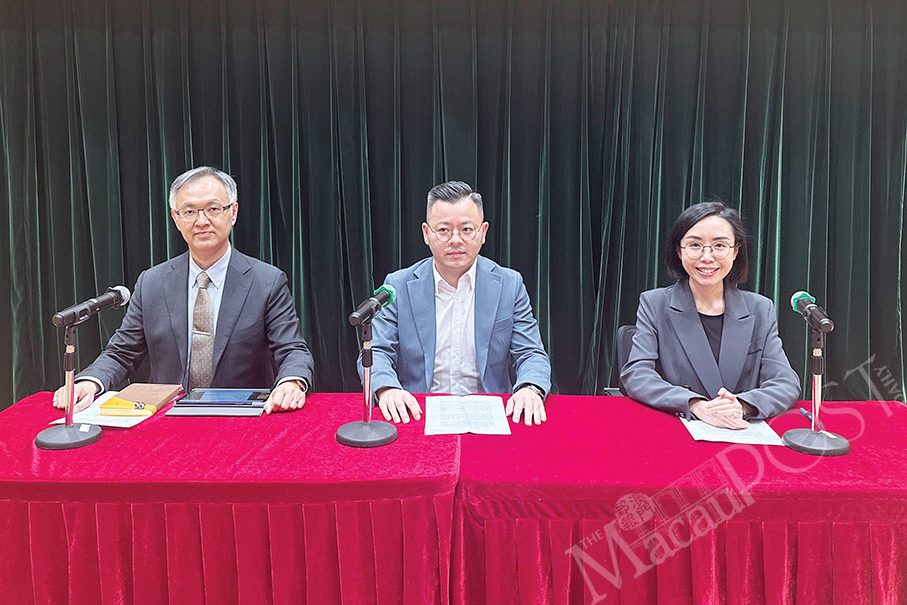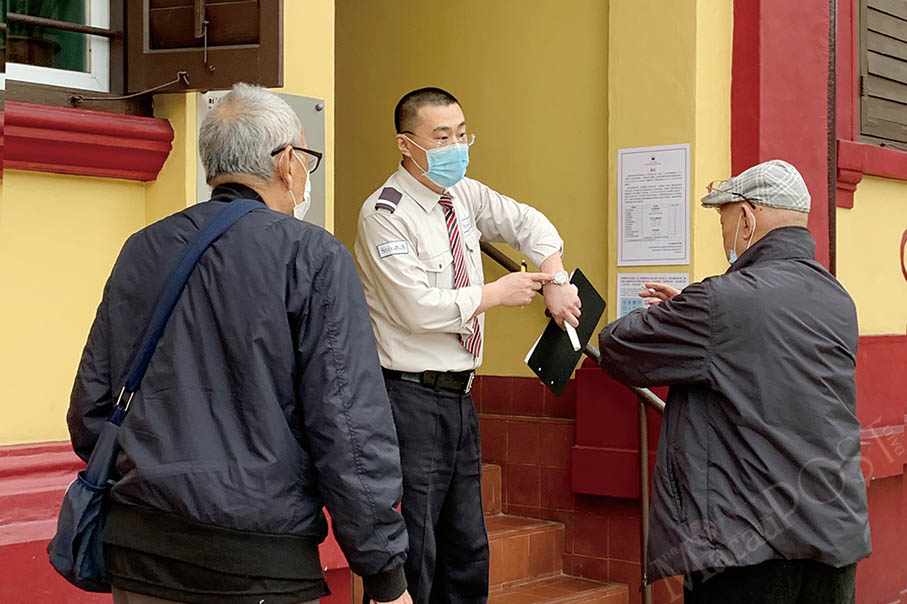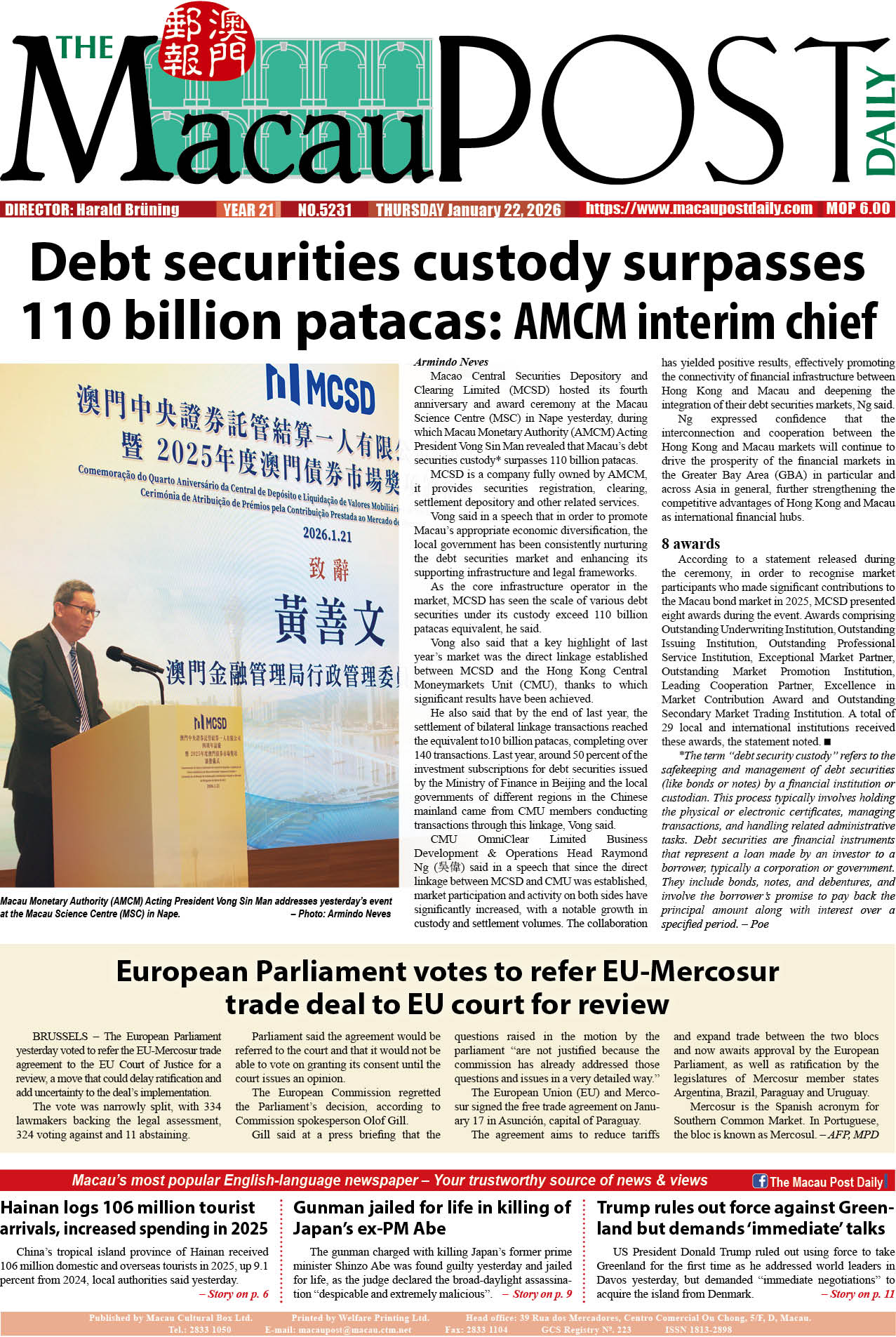The Environmental Protection Bureau (DSPA) was invited to attend a closed-door meeting of the Taipa and Coloane Community Service Consultative Council yesterday to brief the government-appointed council members on its waste reduction and recycling measures – and Choi Seng Hong, deputy convener of the council, quoted DSPA officials as denying rumours in the community that all the waste collected by the bureau for recycling was being incinerated right away, insisting that “the bureau handles each and every piece of recyclables with care, making sure that they are properly recycled or decomposed into resourceful pieces before moving on to the next stage of the process”.
Choi made the remarks after yesterday’s meeting at the Islands District Public Services Centre at Coloane’s Seac Pai Van public housing estate. The post-meeting press briefing was also addressed by deputy conveners Ng Hong Kei and Wong Leong Kuan.
According to the press briefing, the bureau’s efforts in waste reduction and recycling include the introduction of various solid waste recovery schemes for plastic bottles, aluminium cans and paper, food waste, used household batteries, used home appliances, computers and telecom equipment, glass bottles, light, used clothing, “lai see” envelopes and mooncake containers; banning the importation of disposable styrofoam tableware and trays, as well as plastic drinking straws, stir sticks, knives, forks, spoons, plates and cups that are non-biodegradable; imposing differentiated disposal fees for construction waste according to its quantity and quality; and constructing a recycling centre for organic waste.
Organic waste recycling centre project to be completed in 2027
The press briefing noted that under the “important” policy of “Source Reduction and Resource Recycling”, Macau now has more than 4,000 recycling points, while regarding food waste, the bureau indicated during yesterday’s meeting that the construction of a recycling centre for organic waste, which commenced last year, was slated to be completed in 2027, with the capacity in the first phase planned to reach 150 tonnes per day, accounting for 30 to 40 percent of the current amount of local food waste.
“If it is extended to the second phase, the capacity can be increased to 220 tonnes per day, which is 45 to 60 percent of the current amount of food waste in Macau,” Choi quoted DSAP officials as saying.
The press conference also noted that the current waste treatment capacity of the city’s incinerator is 3,000 tonnes per day, which was sufficient for waste treatment over the next 30 years.

Taipa and Coloane Community Service Consultative Council deputy conveners Choi Seng Hong (from left to right), Ng Hong Kei and Wong Leong Kuan look on during yesterday’s post-meeting press briefing at the Islands District Public Services Centre at Coloane’s Seac Pai Van public housing estate. – Photo: Yuki Lei






